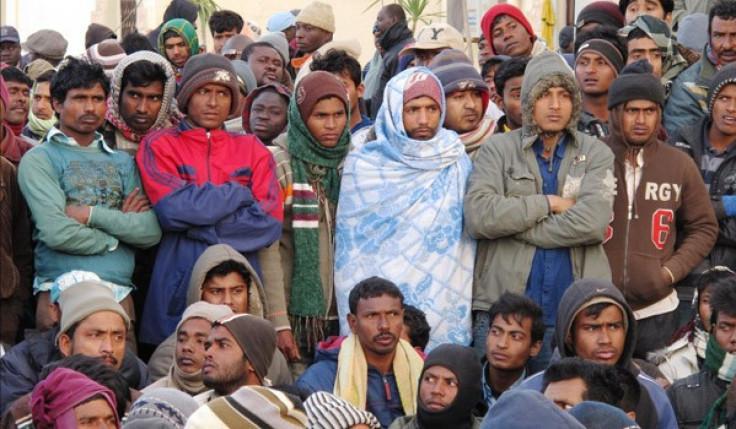Thousands of South Asian Migrants Still Trapped In Libya

Thousands of migrant workers from South Asia are trapped in southern Libya, near the border of Chad, according to a report from The International Organization for Migration (IOM).
These people who have fled the civil war that is raging in northern Libya find themselves in a makeshift camp which is in a hostile, desert area notorious for banditry.
The IOM says most of them are women, children and the elderly and is preparing an airlift to escort them out of harm’s way.
We are especially worried because many of them are exhausted, dehydrated and suffering from respiratory problems, an IOM spokesman told BBC.
They are mostly the families of South Asian people who have been working in Libya's informal sector for many years.
Thousands of other workers of Indian, Pakistani and Bangladeshi descent workers have already escaped Libya. About 40,000 Chadians have also fled Libya through the forbidding southern desert region between the two North African countries.
Time is of the essence, says IOM's Dr. Qasim Sufi, who led the assessment mission to Southern Libya.
The migrants are in a very bad state after having existed so long like this. Conditions for them are brutal in the desert heat with no protection from the sun, wind or sand and no access to water, food or sanitation.
IOM commented on the preponderance of women and children among the South Asians.
“The large presence of the women, children and elderly also highlights the fact that the migrants have been living and working in Libya for many years, for some up to 30 years,” IOM said in a statement. “Leaving Libya is a matter of last resort and the uncertainty of what awaits them in Chad after decades away is causing fear and worry among them.”
Dr. Sufi added: Their situation is heartbreaking on many fronts. During their escape, people have either been separated from loved ones or have lost them. Women without husbands, children or family – not knowing what has happened to them and not having anyone to turn to. One distraught woman came to us in tears, having left her husband in Misrata. They had been separated by the fighting there and she didn't know whether he was alive or dead.
© Copyright IBTimes 2024. All rights reserved.











